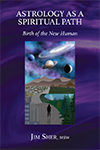As a person begins spiritual work, whether it be through participating in meditation groups, reading books, magazines or articles on spirituality or listening to YouTube videos, etc., one will at some point come across the concept of ‘Unity.” It is regarded as an advanced state that is often associated with a form of transcendence. Beyond that, it seems to be regarded as a mysterious state that evokes more confusion than anything else as it usually is quite undefined.
In my classes, I do introduce this idea and slowly develop the concept as a person begins to discover the real nature of one’s mind with its enormous limitations. In fact, it is fair to say that there’s no need to consider the matter of ‘unity’ until one has discovered quite a bit about one’s present state of one’s mind.
I want to start by looking at the history of this idea so that the reader might get a sense of the ancient nature of this topic even though it is an almost exotic idea that seems either a bit impossible to achieve assuming one can understand the potential of living in this possible state or simply absurd. The fact is that for millennia there have been writings and teachings about the movement possible for us towards a state of Unity. I can start by suggesting that this movement will take us away from a state of fragmentation, chaos, confusion and disorder. While that doesn’t tell us what it is exactly, it does carry an evocative sense about it that might elicit some kind of recognition within us.
Our first task must be to understand better the nature of the state we are actually in. We must look at the everyday condition of our mind. While this process of discovery can be disturbing, even scary, it is absolutely necessary. Why? So that one becomes truly motivated to inquire more deeply into one’s actual state and then begin to really ask if anything can be done about it.
Where might we turn? The state of consciousness possible for us is actually well known and has been for millennia. To find this knowledge, one must be willing to look past the traditional religions and see that there is an ‘esoteric’ basis for perhaps all of them. This article will mention four examples, but there are many more:
1. Christianity
Let us start by looking at the deeper meaning found in Christianity. In the book of John, chapter 1, verse 1, it says, “In the beginning was the Word, and the Word was with God, and the Word was God.” Scholars know that the word “Word” comes from the Greek word ‘Logos.’ As Christianity developed, this term was changed to be associated with God and then further Jesus was thought to be God.
To understand the meaning of ‘logos’ we must return to its Greek roots and let go of silly religious interpretations. Martin Heidegger, philosopher of the last century, defined this term as the principle of ‘gathering.’ This principle, or in my opinion ‘force’, describes the need to bring ideas together into some kind of system. This, we see that the word ‘logic’ has logos as its root. Logic is a way of developing or creating a system of thought. Thus, this force can be thought of as the movement from randomness and disorder to order and harmony.
But this word goes deeper than the creation of logics. Perhaps, another way to understand this idea is to look at some examples from everyday speech. We sometimes describe being in a state of confusion as ‘being all over the place.’ We then state that we must ‘get it together.’ In other words, we all intuit the nature of ‘Logos’ and seek it whenever our state becomes intolerably confusing and overwhelming. Can chaos and disorder be overwhelming, even depressing?
‘Logos’ is, as I will develop it later, very connected to the principle of ‘Unity,’ but can we suggest that it is possible that the very existence of the gathering principle of force is that underlying this reality is ‘Unity’?
2. George Ivanovich Gurdjieff
A famous teacher from the last century was George Ivanovich Gurdjieff, who was known for introducing what he called the “Fourth Way.” This path was notable because not only could one grow and evolve while living in the world, instead of having to enter a monastery or ashram, but can even help the student by teaching them to use their everyday experience as a means for their own transformation.
Gurdjieff held some interesting views that can help us add to our understanding of the importance of the moving towards a state of unity. He regarded normal human beings as ‘machines’ in that their reactivity resulted in being so programmed that one was unable to even know what state they are in. He then added the notion that man is so ‘asleep’ that nothing could be done until the person began to see that they were asleep.
He encouraged his students to begin to recognize that they did not have a single “I”, but were in actuality in a state of having many “I’s.” Man’s task was to awaken by creating this single “I”. To do so required great conscious efforts. Again, we see the same principle operating again, but using different terminology and coming from someone living in a different time and culture. That single “I” he refers to is referring to the very same state of unity as opposed to the state of fragmentation that esoteric Christians knew about.
3. Jiddu Krishnamurti
The history of this person is incredibly interesting, but this is not the article for that. His entire effort was to show how one could go beyond the state of chaos, fragmentation and disorder. The path for a person is to learn that the only way to experience this was to ‘impartially observe’ one’s actual condition or state. It occurs when we fully see our conditioned programmed mind. Might the reader see the same ideas presented once again?
Krishnamurti expressed it this way, “When the conditioned consciousness ends, it marks the emergence of the Mind which is free from all dependence and limitation.” Further, that “It ends the dualistic mind and is a state of unity.” Elsewhere he equates this state with a state of love.
4. Tom Campbell
Is a physicist who has worked with NASA and considers himself to be a “consciousness explorer.” He was a close associate of Robert Monroe, author of such books as “Journeys Out of the Body,” who is pioneering the theory that we are living in a simulation or virtual reality. Campbell wrote a book called “My Big Toe” (theory of everything) and is presenting a view that has the potential of combining physics and metaphysics into one system. He is also going much further to present the idea that each of us are not actually bodies, but what he calls ‘units of consciousness’ who enter a virtual reality in order to grow and evolve.
In other words, this reality has a purpose. Campbell regards this purpose to be the reduction and elimination of ego and fear (a state of high entropy) to the state of Love (low entropy). The term entropy is a physics and engineering word that measures the degree a system is deteriorating, crumbling, declining, decomposing and collapsing. It is a measure of disorder. Evolution then is described as the opposite movement towards lowering entropy, which is achieved as we create order in our lives. Lowering entropy means something similar to what has been presented in this article, a reduction of chaos and disorder and a movement towards unity.
All four of the systems I have presented are proposing basically the same idea, but in different ways and using different models. This notion can itself lead to a new understanding that brings differing views of the world into one ‘unified’ theory. We may be barely touching the surface of this but may have seen its actual start when Krishnamurti began dialogues with the famous quantum physicist, David Bohm, in the 1970’s. We may be on the verge of seeing our world in a radically new way., and all of it is leading us toward the experience of a new state, which is a state of ‘Unity.’
The views expressed here along with many others tell us that the experience of what is being called a state of Unity is part of our human heritage we’ve known about for millennia. But what I want to emphasize is that ‘unity’ is not a mere state. It is an actual force, and that force is evolutionary in nature. It propels us away from divisiveness, disorder, confusion and high entropy and as the force ‘awakens’ in us brings a person towards Love, Unity and timelessness.
What might be the proof of this? It is that many of us are seeking it. If this force did not exist, we would not know about, or ever think about, any alternative to the chaos we feel. We could not be seeking this state if it didn’t exist.
Now, the essential question becomes this:
What can we do to come closer to or align with this unifying, loving force? This must become our new question.
The first step then must be to learn how to get to a state where we are asking this question, not intellectually, but with all of our ‘being.’ It must be asked with great intention and intensity, as if everything depends on it. We must care about it deeply.
The second step is to understand both rationally and experientially that the only way to start moving towards less internal conflict and disorder is to ‘observe impartially,’ which is simply the accepting of whatever state we’re in and inquiring into its true nature. This includes seeing it without any inhibition or fear so that we can see and experience it fully.
This act, when done with enough attention and intensity reduces chaos and conflict so that we begin to feel the ‘pull of the Logos’ and feel its force. Thus, we can begin to cooperate with this force, align with it more and more, and truly discover that our very ‘being’ transforms the more we do this. Love begets Love. We know it to be a better way to live. In fact, we can realize this so thoroughly that we know that there is no real alternative, no option, no other way to be.
Jesus is supposed to have said that, “I am the Way and the Light.” If you understand that it was not Jesus a person, but the Logos or force I am describing here that ‘speaks’ these words, you will know who ‘Jesus’ is. This is esoteric Christianity, it is true Kabbalah (esoteric Judaism), it is Sufism (esoteric Islam), the deeper teachings of the Tibetans and of Hinduism. It is the core of all wisdom teachings and is the aim of anyone beginning a spiritual Path.





Leave a Reply